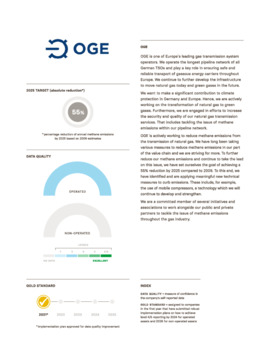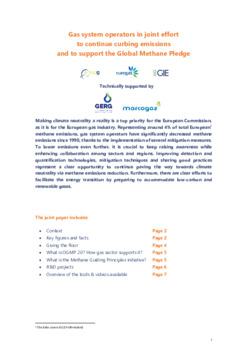
Responsibility
Methane: OGE actively working to reduce methane emissions from the transmission of natural gas.
Our goal is to achieve a 55% reduction in our methane emissions by 2025 compared to 2009 levels. In this way, we are making our contribution to climate protection and living up to our responsibility as Germany's leading gas transmission system operator (TSO).
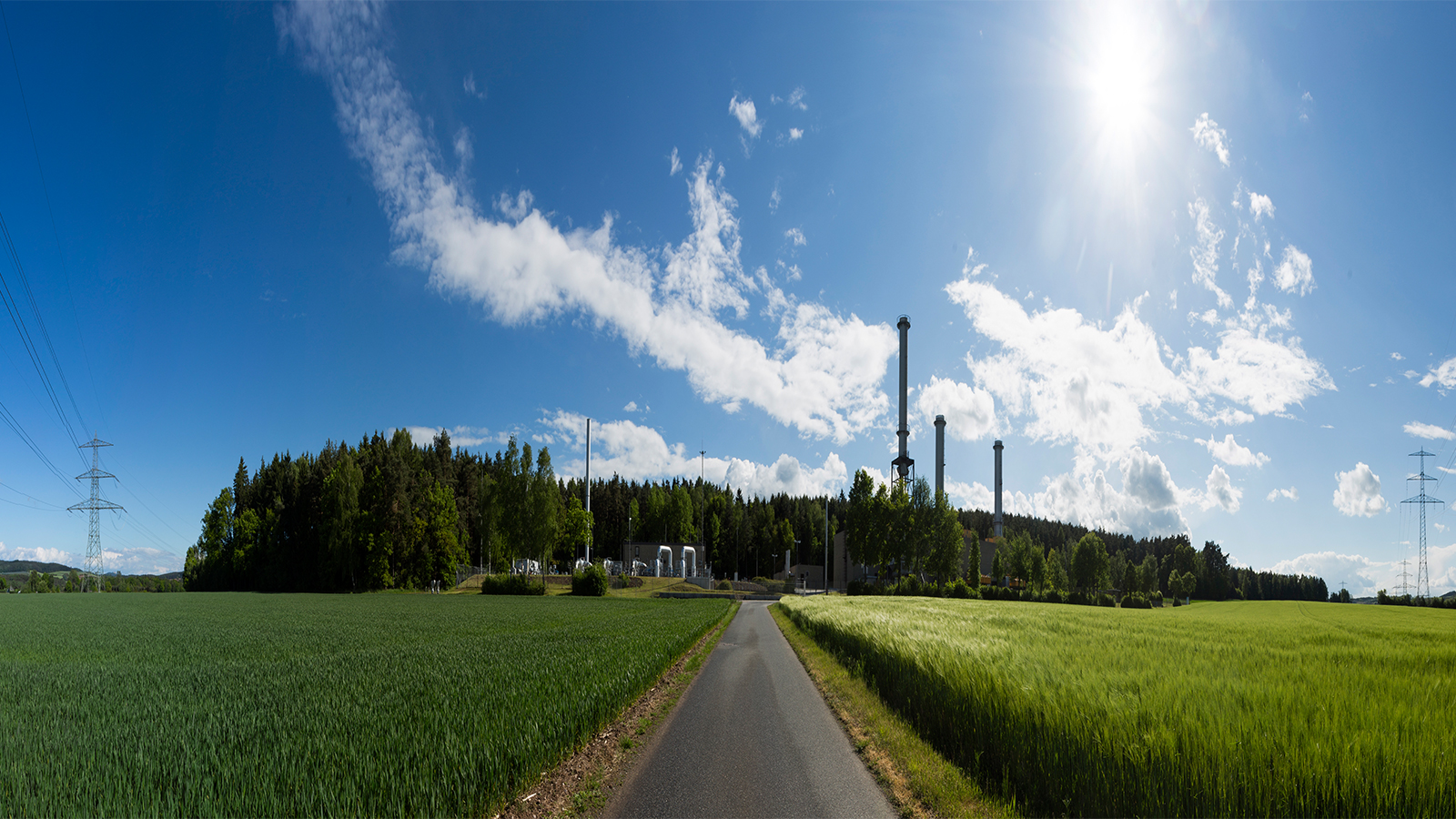
Why is reducing methane emissions important?
Apart from carbon emissions, methane is one of the key factors in man-made climate change, so it is of the utmost importance to continue reducing methane emissions. These occur, for example, in agriculture, waste management and also during gas transmission, when, for example, unburned natural gas is released into the atmosphere. Methane emissions account for 10% of Europe’s total greenhouse gas (GHG) emissions, and they were almost halved between 1990 and 2017. The oil- and gas industry is responsible for 6,2% of methane emissions (of which 24% occur during gas transmission and storage1), so OGE has a responsibility to society as a whole.
1 Source: DVGW (Deutscher Verein des Gas- und Wasserfaches e.V.) „Methan-Emissionen der Erdgas-Infrastruktur Daten, Fakten und Initiativen der Gasbranche“
Methane emissions in Europe – an overview
Percentage shares of all GHG emissions in Europe (2017)
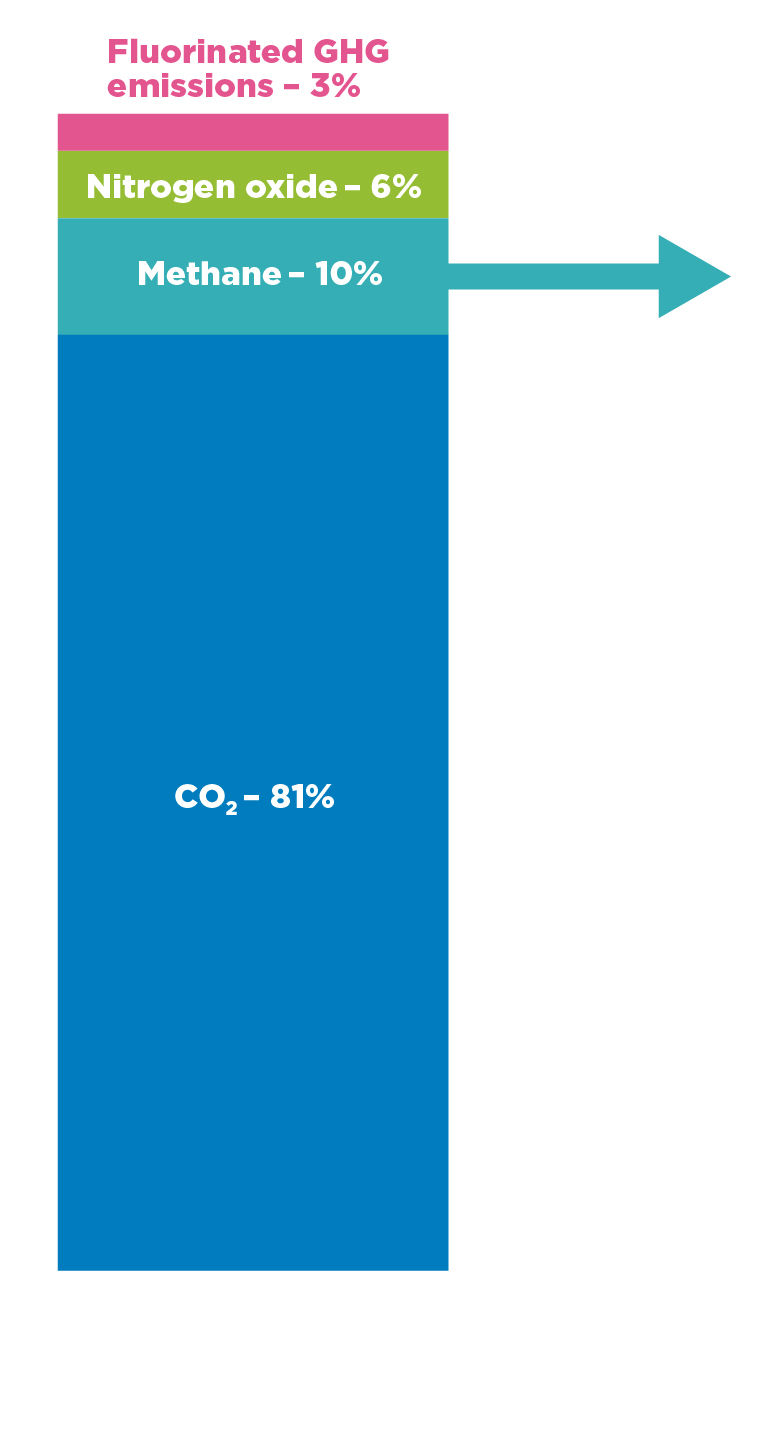
Origin of methane emissions
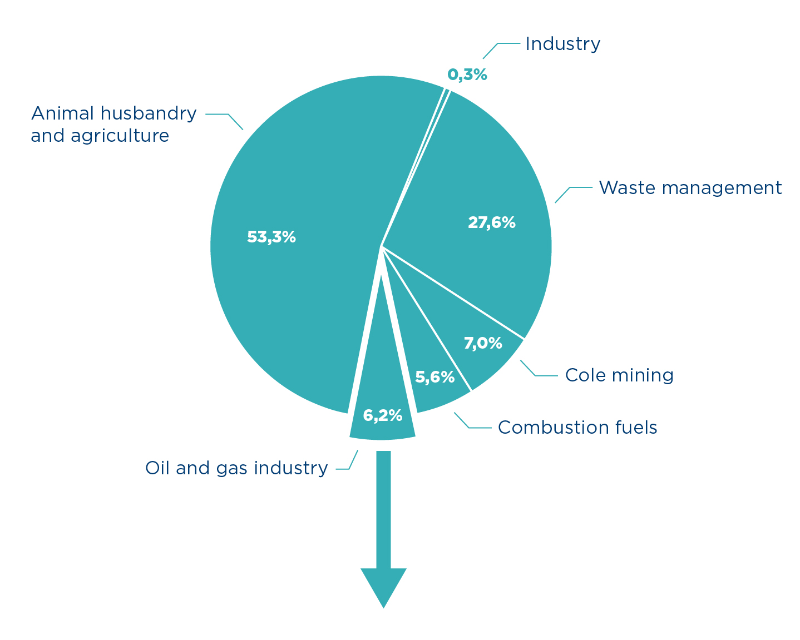
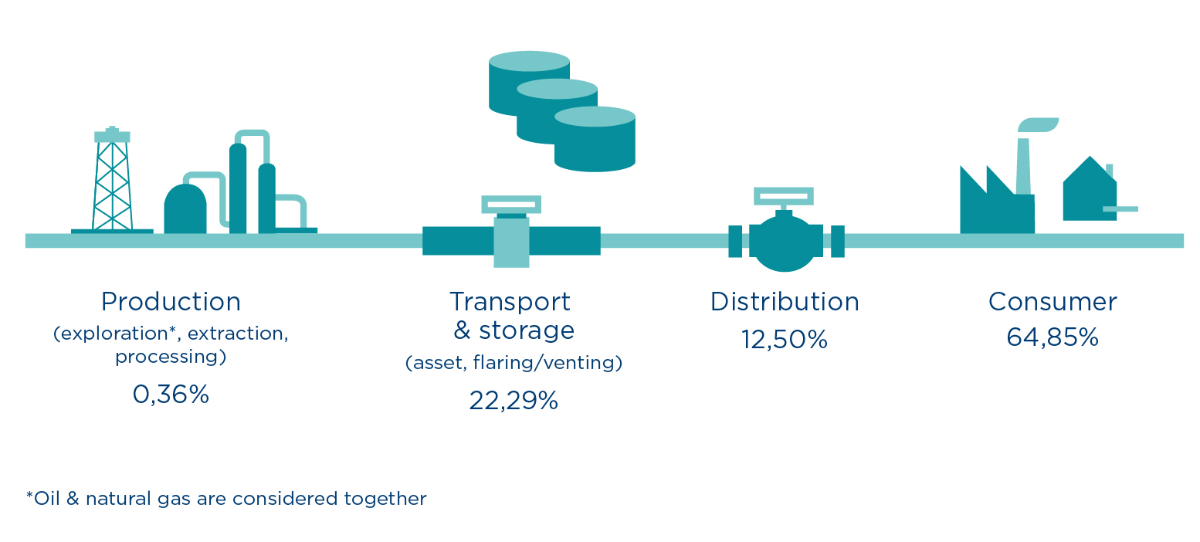
Fugitive methane emissions in the gas industry in Europe from 1990 to 2017
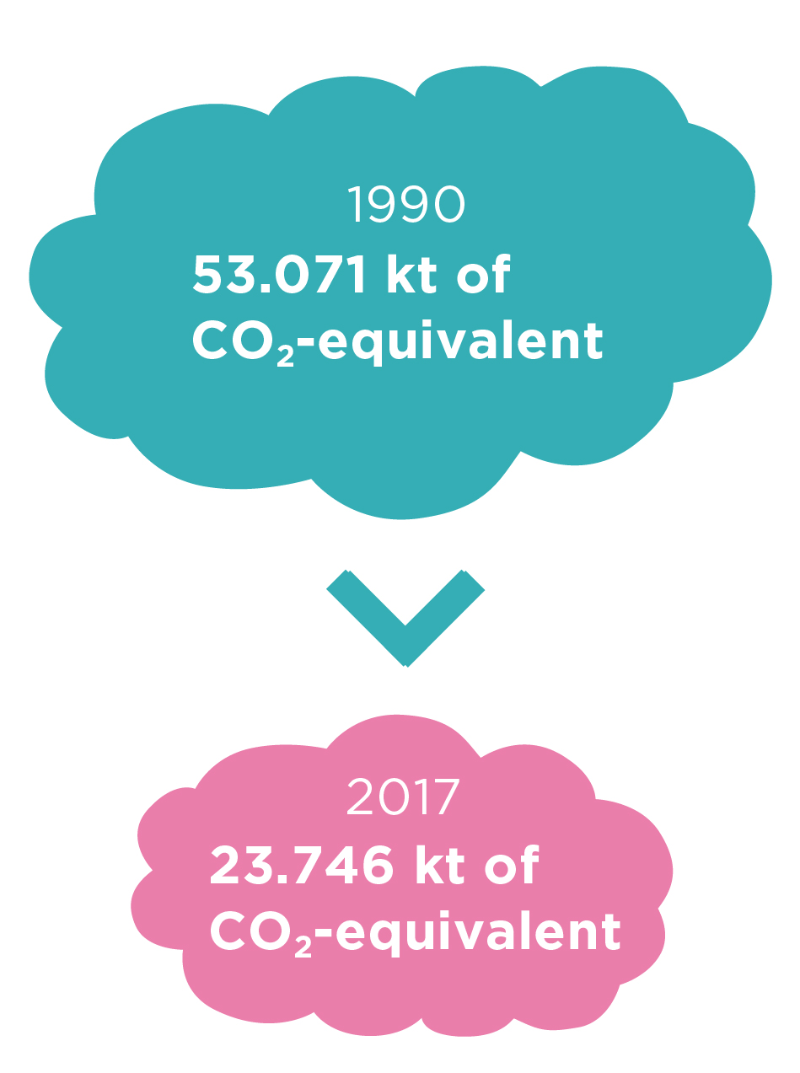
Our methane emissions reduction targets
We are working actively on reducing our methane emissions and aim to continue to play a pioneering role in this regard. We therefore want to reduce our methane emissions by 55 percent by 2025 compared to 2009.
To this end, we have been implementing various measures to reduce methane emissions in our part of the value chain, the transport of natural gas, for a long time. These include the use of mobile compressors and flare systems. When repair work is carried out on long-distance pipelines, in many cases the affected section of the pipeline must be isolated and depressurised – our mobile compressors enable the natural gas to be transferred into another pipeline system. This way, we reduce methane emissions by up to 95 percent. In addition, we use mobile flare systems. It doesn’t matter whether we are dealing with residual gas volumes from pipeline sections that have already been depressurised or volumes under regular operating conditions: Our flare systems burn the natural gas completely. The mobile compressors and mobile flare systems are technologies we will continue to develop. We have also identified and are implementing meaningful new technical measures to curb emissions.
Furthermore, it is important to record methane emissions as accurately as possible. To this end, we have set up a joint measurement programme together with FNB Gas e. V., our industry association. In addition, we are involved in initiatives and associations that tackle methane emissions in the gas industry, such as the UN’s Oil & Gas Methane Partnership 2.0 (OGMP). We welcome the EU’s methane strategy and implement its guidelines.
Further information:
For further information on the topic, please download information brochures of the industry associations DVGW e. V. and Zukunft Gas e. V.:
DVGW-Brochure: Methan Emissions from natural gas infrastructure
Zukunft Gas Fact: Vorketten-Emissionen (only in German)


